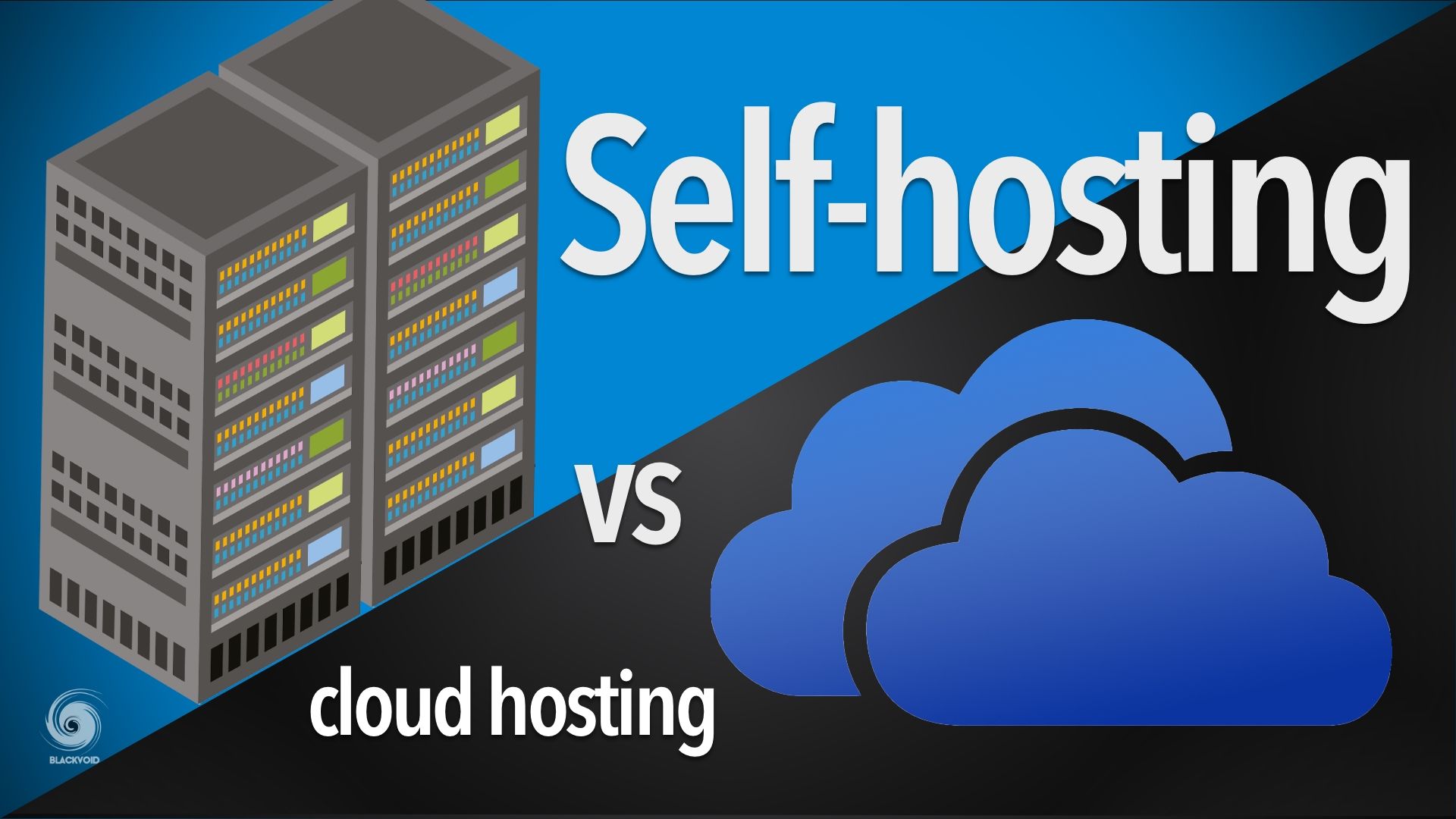Thinking of self-hosting some basic tools; SearxNG, Bitwarden, Lemmy.
What kind of tools are you self-hosting right now? Which ones are easy to manage, which ones are awkward? 👀
A nice place to discuss rumors, happenings, innovations, and challenges in the technology sphere. We also welcome discussions on the intersections of technology and society. If it’s technological news or discussion of technology, it probably belongs here.
Remember the overriding ethos on Beehaw: Be(e) Nice. Each user you encounter here is a person, and should be treated with kindness (even if they’re wrong, or use a Linux distro you don’t like). Personal attacks will not be tolerated.
Subcommunities on Beehaw:
This community’s icon was made by Aaron Schneider, under the CC-BY-NC-SA 4.0 license.
- 0 users online
- 13 users / day
- 237 users / week
- 638 users / month
- 1.28K users / 6 months
- 1 subscriber
- 1.67K Posts
- 28.2K Comments
- Modlog










If you share your Plex library with friends and family like I do, highly recommend looking into Overseerr! I had tried using OMBI before but it was a pain to get set up–actually I never succeeded and gave up. Overseerr was very simple, just another Docker container like so many others, really. Integration with Radarr and Sonarr was seamless for me.
I’ve never got what the point of Home Assistant is, seems to be it’ll talk to a load of smart devices and advertises you can control it with Alexa but at what point why not just have Alexa itsself control the devices?
Home assistant has plenty of use cases. it is not only controling devices but also a very powerful automation system. A couple of things I use it for:
-start my laundry only when I have enough solar power to power it
-notify me when my laundry is done
-track energy usage of many devices (heaters, washing and dishwashing machines, A/C,etc)
-let me know when to open or close my windows based on inside and outside temperature
-Force my water heater to turn on when I have solar power
-Expose non-homekit devices to homekit
Solar power? That’s pretty cool, do you use it exclusively or just to bring down energy bills?
Im still connected to the grid. The idea is to use as much as I can from my panels instead of the grid.
Fair the dream is to be completely off grid
Probably the same for a lot of people here to be honest
What’s the reason for both Plex and Jellyfin?
Sometimes one or the other has a recent updates that causes problems, or a random movie won’t play right. It’s rare, but since both connect to the same NAS where all of my media is stored, running both is pretty easy and it’s nice to have a backup.
Not as much as I probably should be! I have a nice little Proxmox cluster, backed by a UPS and a beefy NAS, but mostly I use it for fussing around with stuff, playing with instances, nothing really mission critical.
Home Assistant OS (in a VM)
AdGuard home
SWAG (Ngnix proxy)
Emby
Airsonic Advanced
Komga
Immich
FreshRSS
Owncloud
Organizr
Duplicati
Portainer
Virtmanager
The “arr” family
There’s a few other support containers for the above items like redis and postgres. This is all done on Ubuntu Server. But I’m slowly prepping to switch over to Unraid as I prefer the storage management on that. For me file storage and redundancy is a huge part of why I run all this.
Lemmy Jellyfin Wireguard so I can access my home network from outside
All three are easy to manage(so far).
I believe I’m at 42 Docker containers now, lol. Some of the notable ones:
There is a lot of support stuff too like MariaDB and orbital-sync.
I’m going to be working on Lemmy when I get back from vacation but I leave in like 2 hours so that’s going to have to wait, lol.
By in large, the docker makes it stupid easy for the vast majority of my containers and portainer makes it even easier since you can manage everything through a web UI.
Question about Vaultwarden. How does sync work? My browser extension for Bitwarden auto syncs to their server, is that possible with Vaultwarden? Or is it more for manual backup?
On an unrelated note, does anyone know if lemmy has rss?
Can home assistant be used without the ad-ons (I want to learn some smart home stuff, but do not want the overhead of a vm)
Yes it can, though it is easier to set some things up with the built-in addons. Most addons can be set up independently as docker containers (like z2mqtt or node-red) but may require additional configuration.
I’m usually a lot of what others are posting. One of my favorites so far has been HumHub. It’s a social media platform that’s like an old-school Facebook before all the news and ads. Currently have about 20ish members and it made available just for my large extended family. A lot of us already left Facebook so it’s nice to have a similar set of features just for us without outside influences.
Nginx Nextcloud Lemmy Emby HomeAssistant Paperless-ngx Podgrab Gokapi Snippet box Opnsense Deluge Pihole 3CX Omada SDN controller Gitea iredmail Hashicorp Vault Portainer Heimdal Firefox browser
I’m pretty happy with this lot and at the moment I’m not sure what I want to add. Perhaps some RSS reader, but I don’t think that’ll see much use tbh.
haven’t been hosting super much yet, but it’s definitely growing slowly:
The NAS is only really used for file storage and does no processing at all, everything else runs on a small Intel nuc. Outside of established services, I also host my own small services on the same nuc, but it’s basically only a website and a file-uploading service to use with ShareX
This is likely not the thread for it, but I’ve been wanting to look for some kind of guide to self hosting for someone who’s never done it before. Once I get out of my lease that, while it includes internet, prohibits me from running any kind of servers, I want to potentially look into starting something, although that would also involve me getting a dedicated machine for this. I do have a somewhat old Raspberry Pi 3 from like 2016 I want to say (it has built in WiFi and Bluetooth but as I am currently home, I don’t have the specs on hand atm). The only other two machines are my desktop, which is way too overpowered to be running a server even some of the time, and my laptop, which I want to be able to take with me if I need to go work on something at a coffee shop.
There are some options for Pis like unraid.
Honestly though, just pick one problem you have and solve that with docker.
Beat your head against the wall trying to figure out the virtualization, volume mapping, permissions and networking.
Then start finding other problems to solve.
I stood up a homelab for media storage and streaming… and it has now grown to 30-40 applications running in parallel.
I suppose my main quandary arises from reaching a point where my apps need more headroom than I have to give
Not a ton of stuff, but I’m currently looking at some more, thanks to this thread.
At home:
On a Singapore-based VPS:
I’ve got a Synology NAS running Home Assistant and basic NAS stuff (mostly backing up NextCloud).
I’ve got a Linode (might move if I get less lazy) running NextCloud, and a setup for a Minecraft server I haven’t run for years. That NextCloud server replaced BTSync/Syncthing and TTRSS servers, and also now does my password syncing via KeePass, and contacts through webdav.
I run everything off a Synology NAS using Docker, except for Plex which runs directly so I can take full advantage of hardware transcoding.
I also have a separate mini-computer for Home Assistant. That runs on HA Blue, which was the limited run predecessor to Home Assistant Yellow. May seem silly to have separate hardware, but I was tired of my whole system going offline every time I needed to reboot HA (which means possibly interrupting a family or friend watching a remote Plex stream, the horror!)
Just Nextcloud on an intel NUC at the moment, bare metal.
barcode buddy
bookstack
borgmatic
Stirling PDF
dashy
filestash
grocy
joplinServer
paperless
portainer
StoreDown
taskcafe
trilium
watchtower
home Assistant
git